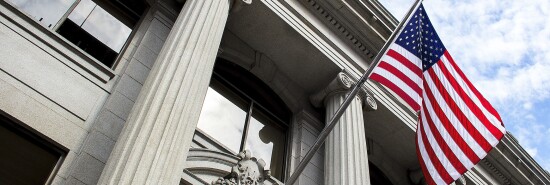
Bureaucracy versus democracy
Timothy P. Carney
Video Embed
Liberal politicians and journalists in the Donald Trump era have tried to disguise their own ideology as non-ideological by saying that their side was simply the side of “democracy.”
This is all disingenuous hogwash, of course, as the defenders of democracy assailed the Dobbs decision, which was the most important pro-democracy Supreme Court ruling in decades. When the democracy-defender-in-chief declares it’s a threat to democracy that some country elected the woman he disliked, and when liberal columnists claim that the Republicans winning is anti-democracy, that also kind of shows what’s going on.
CHINA EXPOSES CALIFORNIA’S MORAL CORRUPTION
One of the more intellectually honest and consistent democracy defenders on the Left in recent years has been writer Adam Gurri. Gurri is open that he wants courts to have less power, which is an idea liberals couldn’t say while they relied on Roe to protect abortion from democracy.
These days, Gurri argues, the courts are generally the Right’s undemocratic branch. Outside of Dobbs, that’s largely true. The Left’s undemocratic branch is the bureaucracy. As I wrote in May, “everyone’s a bit undemocratic.”
Gurri, in a new essay, wrestles with the undemocratic-ness of the administrative state.
“We need the administrative state to perform the basic operations of modern government. The question is how we mitigate against abuses….”
“The very scale of the welfare and regulatory functions of the state renders this an impossible solution,” argues Gurri.
My first question for Gurri is whether we need a bureaucracy nearly as large as our current one. How many humans are needed to process check payments in the age of high-powered computers and light-speed internet? Bank of America surely has more efficient means of getting money to and from the right people on time.
Reducing the bureaucracy isn’t merely a money-saving thing. Reducing the bureaucracy is increasing the share of our government that is democratic. If you love democracy, you should look for ways to shrink the federal workforce.
Another problem is the belief that the bureaucracy is immune from politics and partisanship.
“In practice, democratic accountability has to come in at the top of public organizations,” Gurri writes. Obviously this is true. But if the leader elected to the top of the government cannot steer the organizations because the bureaucrats won’t let him or her, then the bureaucracy is undemocratic.
Bureaucracies can and do undermine democracy in many ways besides flatly refusing direct orders. They fail to adequately inform elected officials, they slow-walk their duties, they distort the flow of information both up and down the chain of command.
Gurri worries that without a professionalized civil service, populist demagogues would “impose the base’s values on the implementers of the law.”
Gurri also quotes another author explaining that in a functioning bureaucracy, you see “career advancement based on ‘merit’ rather than ‘factional alignment’ or ‘ethnic affiliation.’”
Here, the theoretical defense of bureaucracy crashes head-on into the reality of the American bureaucracy.
The bureaucracy, just like the base of any party, has its own values. For one thing, the public sector unions, which are political and economic actors, have their own values which they impose. Bureaucrats have certain class interests that are not identical to the interests of the public. So the “imposing” of values that happens in a spoils system also happens in a bureaucracy.
And no honest person can deny that America’s bureaucracy advances careers through factional alignment and ethnicity. DEI principles are baked into our military bureaucracy for one thing.
This is ideology and ethnicity wrapped into a single bundle!
CLICK HERE TO READ MORE FROM THE WASHINGTON EXAMINER
The bottom line is that democracy needs to be tempered. The whole idea of the Bill of Rights is tempering democracy. The modern state cannot be administered by elected officials. We need to accept that this is undemocratic and then take steps to minimize the power and size of this bureaucracy.
